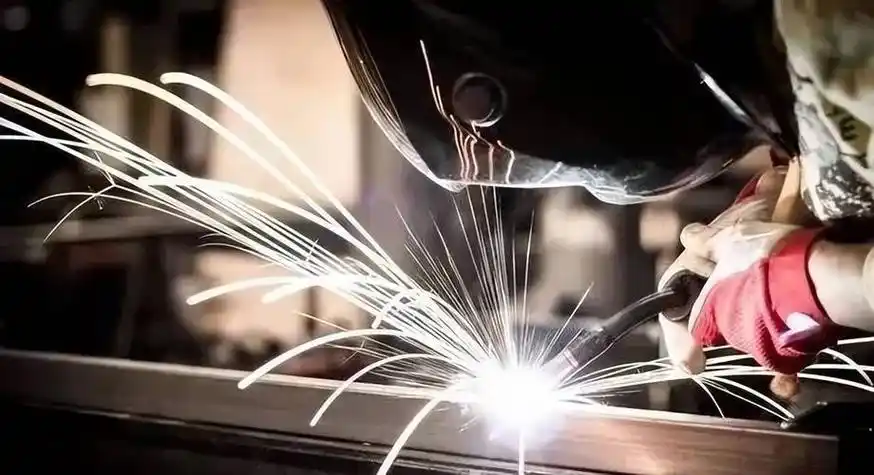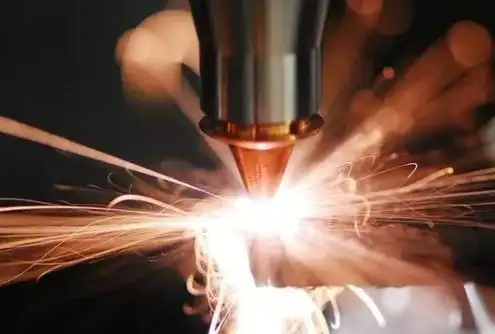Laser Hybrid Welding: The Future of High-Performance Welding Technology
Introduction
In today’s fast-paced industrial landscape, manufacturers are constantly seeking welding technologies that provide higher efficiency, superior quality, and cost savings. Laser Hybrid Welding (LHW) has emerged as a revolutionary solution, combining the high precision of laser welding with the stability and deep penetration of arc welding. This innovative process is transforming industries such as oil & gas, aerospace, automotive, and heavy manufacturing, offering unmatched advantages in productivity, material compatibility, and automation.
What is Laser Hybrid Welding (LHW)?
Laser Hybrid Welding is an advanced welding technique that integrates laser welding with a secondary welding process, such as MIG (Metal Inert Gas) or TIG (Tungsten Inert Gas) welding. This combination leverages the high energy density of laser welding to achieve deep penetration while utilizing the stability and filler capabilities of arc welding to enhance weld quality and adaptability.
This hybrid approach overcomes the limitations of individual welding methods, making it an ideal solution for high-performance applications requiring speed, strength, and precision.
Key Advantages of Laser Hybrid Welding
1. High Efficiency & Superior Quality
Welding speed is 2 to 5 times faster than conventional welding.
Minimal heat-affected zone (HAZ) reduces material distortion.
Stronger, defect-free welds improve long-term durability.
2. Broad Material Compatibility
Suitable for high-reflective materials like aluminum and copper.
Enables dissimilar metal welding (e.g., steel-aluminum, titanium-stainless steel).
Compatible with coated materials such as galvanized steel.
3. Enhanced Process Stability & Automation
Optimized weld pool dynamics reduce defects and improve consistency.
Can be easily integrated into robotic welding systems for automation.
Ideal for high-precision manufacturing, such as automotive and electronics industries.
4. Significant Cost Savings
Reduces material waste and rework costs due to high weld quality.
Cuts labor costs by increasing automation and reducing the need for post-weld processing.
Energy-efficient process lowers operational costs in large-scale production.
5. Specialized Applications & Unmatched Versatility
Enables micron-level precision welding for delicate electronic components.
Capable of welding thick-section materials, such as nuclear power plant pipelines.
Effective for high-temperature alloys used in aerospace and energy sectors.
Laser Hybrid Welding in Industrial Applications
1. Oil & Gas Industry
Laser Hybrid Welding is widely used for welding pipeline systems, pressure vessels, and offshore structures, offering strong, corrosion-resistant welds with minimal defects.
2. Automotive & Transportation
In the automotive sector, LHW is used to weld lightweight aluminum and steel components, enhancing vehicle durability while reducing weight and fuel consumption.
3. Aerospace & Defense
The aerospace industry relies on LHW for high-strength welding of titanium and nickel-based alloys, ensuring lightweight yet extremely durable structures.
4. Power Generation & Heavy Manufacturing
LHW is ideal for welding thick-section steel plates used in nuclear power plants, wind turbines, and pressure vessels, providing high-strength, long-lasting joints.
FNS: Your Partner in Advanced Overlay Cladding Solutions
At FNS (NanJing) Surface Engineering Service Co., Ltd., we specialize in cutting-edge welding and surface engineering solutions. Our expertise in Laser Hybrid Welding (LHW), weld overlay, and cladding technologies enables us to deliver high-performance, cost-effective welding solutions tailored to your industry needs.
Our state-of-the-art facilities and expert engineering team ensure that every project meets the highest quality, efficiency, and durability standards. Whether you require precision welding for high-tech applications or high-strength welding for industrial components, FNS has the expertise to support your business.
Conclusion
Laser Hybrid Welding (LHW) is revolutionizing modern manufacturing by combining speed, strength, and automation into a single, high-performance process. Its versatility, efficiency, and cost-saving benefits make it the preferred choice for industries ranging from oil & gas to aerospace and automotive manufacturing.
At FNS, we are committed to advancing welding technology to meet the demands of high-precision and high-durability applications. Contact us today to learn how our LHW solutions can enhance your production capabilities and drive the future of welding technology.
Get in touch with our experts today!


